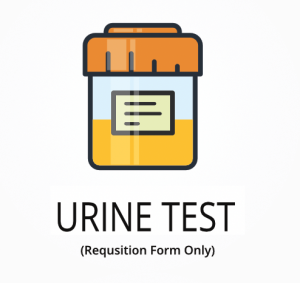Ordering the NeuroBasic Profile | 24-hr Urine | Doctor’s Data
Ordering this test helps measure key brain chemicals, called neurotransmitters, that affect mood, focus, memory, and sleep. It can help identify imbalances that may be linked to symptoms like anxiety, depression, brain fog, or trouble sleeping. Interestingly, this test can also reveal patterns in neurotransmitter metabolism that may not show up in blood tests, offering a broader view of how your body processes these important chemicals.
When ordering, you can expect these specific benefits:
- Measures dopamine, serotonin, and other neurotransmitters to help pinpoint imbalances.
- Assesses how your body breaks down and removes neurotransmitters over a full 24-hour period.
- Provides data that can guide targeted nutrition or supplement plans.
- Helps track changes in neurotransmitter levels over time for ongoing symptom management.
- Supports your healthcare provider in making more informed decisions about your care.
Who Should Consider Neurotransmitter and Brain Chemistry Testing
People who have ongoing trouble with focus, mood swings, or sleep that doesn’t improve with basic changes may benefit from this test. For example, someone who has tried different diets, sleep routines, or stress management techniques but still feels mentally foggy or emotionally unstable could use this test to find out if neurotransmitter imbalances are playing a role.
Ordering this test may also be helpful in these situations:
- Persistent fatigue that doesn’t improve with rest or lifestyle changes.
- Unexplained irritability or emotional outbursts that seem out of character.
- Difficulty concentrating or remembering things, even after addressing other possible causes.
- Frequent headaches or muscle tension that may be linked to stress chemistry.
- People with a family history of neurotransmitter-related conditions, such as mood disorders, who want to check their own levels.
Testing for neurotransmitter imbalances can help identify specific chemical patterns that may be linked to symptoms like anxiety, depression, or trouble focusing, allowing for more targeted support. Delaying this test could mean missing the chance to address these imbalances early, which may make it harder to manage symptoms over time.
How to Prepare for Brain Chemical and Mood Marker Testing
Fasting is not required for this 24-hour urine test, but you should avoid collecting the sample during menstruation for the most consistent results. Always follow any instructions or special guidance your healthcare provider gives you to make sure your sample is collected correctly and your results are as useful as possible.
Labs Included When Ordering Your NeuroBasic Profile | 24-hr Urine | Doctor’s Data
| Test Name | Reference Range | What This Marker Means | Low and High Levels of This Marker |
|---|---|---|---|
| Catecholamine Fractionation, free | Dopamine: 150-450 Epinephrine: 1-20 Norepinephrine: 15-80 |
Catecholamines are brain chemicals that help control mood, alertness, and stress response. This test measures dopamine, epinephrine, and norepinephrine in urine over 24 hours. | High levels mean your body may be under stress or have an overactive stress response.
Low levels mean you may have low energy, poor focus, or trouble with motivation. |
| Creatinine | 800-2000 | Creatinine is a waste product from muscles and helps check if your urine sample is concentrated enough for accurate testing. It is used to adjust the results of other markers. | High levels mean your urine is very concentrated, which can affect test results.
Low levels mean your urine is too diluted, which may make results less clear. |
| Dopamine, free | 150-450 | Dopamine is a brain chemical that helps with motivation, focus, and movement. This test shows how much dopamine your body is making and removing. | High levels mean you may feel restless, anxious, or have trouble sleeping.
Low levels mean you may feel tired, unmotivated, or have trouble focusing. |
| Epinephrine, free | 1-20 | Epinephrine, also called adrenaline, is released during stress and helps your body react quickly. This test checks how much is being made and cleared in a day. | High levels mean you may be under stress or have symptoms like rapid heartbeat or anxiety.
Low levels mean you may feel sluggish or have trouble responding to stress. |
| Gamma-aminobutyrate (GABA) | 2-20 | GABA is a calming brain chemical that helps control anxiety and promotes relaxation. This test measures how much GABA is being made and removed. | High levels mean your body may be trying to calm itself from stress or overstimulation.
Low levels mean you may feel anxious, tense, or have trouble relaxing. |
| Glutamate | 10-50 | Glutamate is a brain chemical that helps with learning and memory. It is also involved in brain signaling and can affect mood and focus. | High levels mean you may feel overstimulated, anxious, or have trouble sleeping.
Low levels mean you may have trouble with memory or learning new things. |
| Glycine | 10-40 | Glycine is a calming brain chemical that helps with sleep and mood balance. It also supports healthy nerve and muscle function. | High levels mean your body may be trying to balance out too much stimulation.
Low levels mean you may have trouble sleeping or feel more anxious. |
| Histamine | 10-40 | Histamine is involved in immune response and can affect mood, alertness, and sleep. This test shows how much histamine is being made and cleared. | High levels mean you may have allergies, headaches, or trouble sleeping.
Low levels mean you may feel tired or have low alertness. |
| Norepinephrine, free | 15-80 | Norepinephrine is a brain chemical that helps with focus, alertness, and stress response. This test measures how much is made and removed in a day. | High levels mean you may feel anxious, have high blood pressure, or trouble relaxing.
Low levels mean you may feel tired, unfocused, or have low motivation. |
| Phenethylamine (PEA) | 0.5-3.0 | PEA is a brain chemical linked to mood, attention, and feelings of pleasure. This test checks if your body is making and clearing PEA normally. | High levels mean you may feel excitable, restless, or have mood swings.
Low levels mean you may feel low mood, tired, or have trouble focusing. |
| Serotonin | 100-225 | Serotonin is a brain chemical that helps control mood, sleep, and appetite. This test shows how much serotonin your body is making and removing. | High levels mean you may feel restless, have trouble sleeping, or experience headaches.
Low levels mean you may feel sad, anxious, or have trouble sleeping. |
Reference ranges may change slightly as labs update their methods or as new research becomes available. Always check your report for the most current reference values.
NeuroBasic Profile | 24-hr Urine | Doctor’s Data FAQ
Is there NeuroBasic Profile | 24-hr Urine | Doctor’s Data testing near me?
This is a test kit you can collect at home and return by mail, so you don’t need to visit a lab for the sample. For people dealing with symptoms like brain fog or trouble focusing, having a convenient collection option can make it easier to get tested without extra travel or stress.
How do I interpret the test results?
While your treating physician should review your results, we also offer a one-on-one test results review with our clinical team to help you understand your results and next steps.
What is the cost of the test?
The price you see includes shipping the kit to you and return shipping to the lab, but local draw fees may apply. Ordering this test can help you find out if neurotransmitter imbalances are slowing your progress, so you can address them and start feeling better sooner.
How often should I retest?
Retesting is usually recommended every 3 to 6 months, especially if you are making changes to your diet, supplements, or treatment plan. This helps track how your neurotransmitter levels respond and supports more precise adjustments over time.
How accurate is the test?
This test uses high-performance liquid chromatography with electrochemical detection (HPLC-ECD) to measure neurotransmitters in urine, with a specificity of 98% and sensitivity of 97%. TrueHealthLabs.com partners with CLIA-certified and CAP-certified laboratories to uphold rigorous testing standards for dependable results.
Important Notes
- The test kit cannot be mailed or collected in New York. Contact us with questions.
Medical Review Board
Reviewed by Jeff Donohue M.D. from Body Logic and Brady Hurst DC, CCCN. Written by True Health Lab’s team of editorial health contributors.
Disclaimer: This information is for educational purposes only and not intended as medical advice. Consult your healthcare provider for personalized guidance.
Why Customers Trust True Health Labs - What People are saying
Also rated 4.6 out of 5 based on 3452 ShopperApproved reviews- See all TrueHealthLabs.com reviews.










